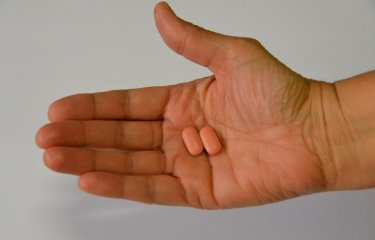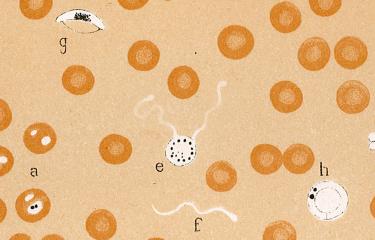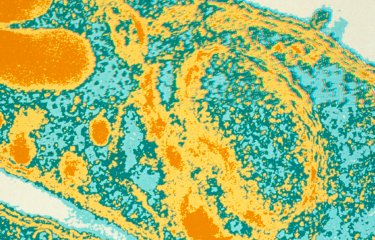Researchers from the Institut Pasteur have published a study in the journal AIDS that demonstrates how infection in a pregnant woman by the malaria parasite could increase the risk of in utero transmission of the AIDS virus to the child. This study reinforces epidemiological observations and emphasises the importance of treating malaria in HIV-positive women.
Press release
Paris, march 18, 2008
Several epidemiological studies have revealed correlations between malarial infections in pregnant women who are also infected by HIV and an increase in the mother-to-child transmission of the virus. However, the mechanisms of this phenomenon remained unknown.
Earlier studies, supported in part by the ANRS, led the researchers to propose that sequestration of the Plasmodium falciparum parasite in the placenta of the pregnant woman might cause this increase. Their hypothesis was that binding of the malaria parasite to placental cells locally stimulated the replication of HIV-1, thereby increasing mother-to-child transmission of the virus in utero.
The study, conducted by researchers from the Regulation of Retroviral Infections Unit, in collaboration with two other teams from the Institut Pasteur in Paris and the Virology Laboratory at the Pasteur Centre of Cameroon in Yaoundé, set out to examine this hypothesis.
The researchers worked with an experimental placental cell line in culture, which was placed in contact with a protein molecule used by the parasite to bind to the surface of the placental cells. The researchers thereby showed that the replication rates of HIV-1 strongly increased according to the amount of the parasite molecule added.
“Our study suggests that specific interactions between the malaria parasite and the placenta contribute to mother-to-child transmission of the AIDS virus in areas where the two diseases co-localize.”, the authors concluded. “Improved implementation of anti-malaria therapy in addition to antiretroviral therapies throughout pregnancy may help to prevent mother-to-child transmission of HIV-1”.
Photo : Plasmodium falciparum, the malaria parasite - copyright Institut Pasteur
Sources
"Specific stimulation of HIV-1 replication in human placental trophoblasts by an antigen of Plasmodium falciparum": AIDS, March 18, 2008.
Ahidjo Ayouba (1), Cyril Badaut (2), Anfumbom Kfutwah (3), Claude Cannou (1), Alexandre Juillerat (2), Stéphane Gangnard (2), Charlotte Behr (4), Odile Mercereau-Puijalon (4), Graham A. Bentley (2), Françoise Barré-Sinoussi (1), Elisabeth Menu (1)
1. Regulation of Retroviral Infections Unit , Institut Pasteur, Paris
2. Structural Immunology Unit (CNRS URA 2185), Institut Pasteur, Paris
3. Virology Laboratory, Pasteur Centre of Cameroon, Yaoundé
4. Parasite Molecular Immunology Unit (CNRS URA 2581), Institut Pasteur, Paris
Contact persons
Institut Pasteur - Press Office: Corinne Jamma or Nadine Peyrolo
– Tel.: +33 (0)1 40 61 33 41 – Email: cjamma@pasteur.fr





